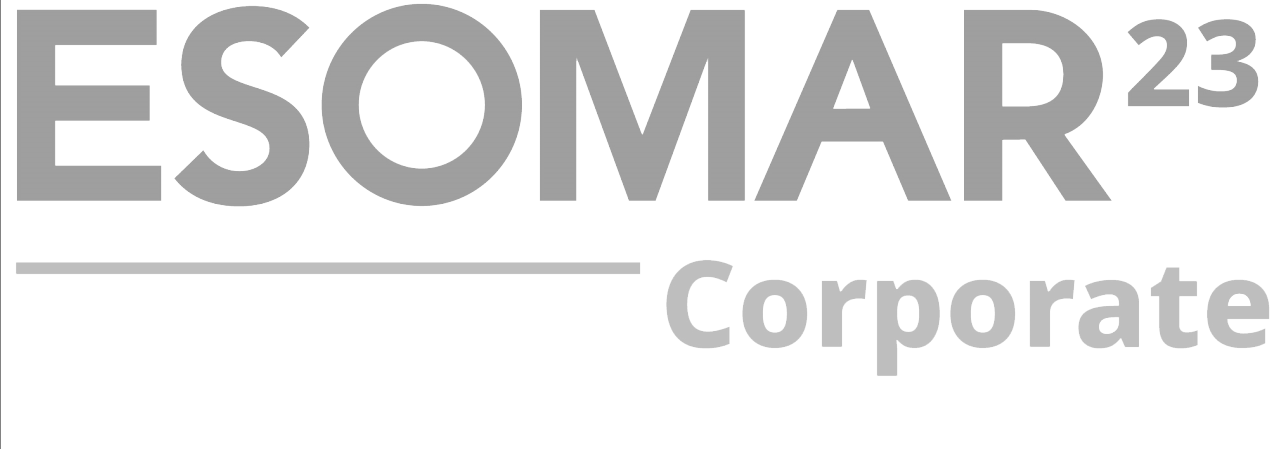Qualitative vs Quantitative- what method does your research require?
Qualitative research means gathering non-numerical data using a scientific approach. Instead of “how many†and “how muchâ€, qualitative data deals with simply “howâ€, “whyâ€, “whenâ€, and so on.

To determine the method of research required, there are two generic terms used depending on the style or research conducted, these are known as ‘Quantitative’ and ‘Qualitative’.  Your research maybe better suited to one of the two types or you may benefit from a combination of both. This blog will help you to understand what those methods are and the type of research that you may need to get the optimal data for your product.
Qualitative (Qual)
Qualitative research, also known as ‘Qual’ is generally defined as a way to formulate hypotheses, think of it as a type of scientific research where we can collect evidence and seek answers to a question or problem. We use qual research when we want to understand something- concepts, thoughts, experiences- as it aims to obtain more personal in-depth details. Qualitative research is ideal when we want to understand the answers to the more personal questions such as “Why, How?” behind a phenomenon or behaviour, as it focuses on gathering descriptive information to obtain answers, it helps to comprehend someone’s reasons for making one choice or another, for example branding; describing the opinions of a consumers’ emotions about a brand and its products, as well as their brand’s competitors. The moderator might also ask follow-up questions to gain a deeper understanding of the participants’ thought processes and decision-making.
Summarising the above information, the goal of this qualitative research from any company would be to gain deep-personal insights into the reasons why consumers prefer the brand’s product over its competitors, or vice versa. This information could be used to refine the brand’s messaging and product offerings to give a more satisfactory experience of their services/goods which better meet the needs and preferences of their target audience, possibly giving them that edge they need to stand out amongst the competition.
Qualitative research as you can see is an effective tool for companies and their brands can use to gain a deeper insight of their customers’ thinking and the market, and to inform their strategic decision-making to produce a more successful business.
Qualitative Research Methods
- Case Studies: Our researchers conduct in-depth investigations into an individual, group, event, or community, typically gathering data through observation and interviews.
- Focus Groups: Our moderator (or researcher) guides conversation around a specific topic among a group of participants.
- Ethnography: Our researchers interact with and observe a specific societal or ethnic group in their real-life environment.
- Interviews: Our researchers ask participants open ended questions to learn about their perspectives on a particular subject.
Quantitative (Quant)
Quant research is a way of forming strong conclusions. It is more associated with data that can be measured, dealing with numbers and statistics in order to measure variables and tests hypothesis. Correlations can be used with this data to spot trends according to an existing hypothesis. It can used to study a large group of a population. We use quant when we want to confirm or test an already existing theory or hypothesis. It tells us ‘what’ we need to know.
Quantitative research is particularly useful when we want to confirm or disprove a theory or hypothesis, as it provides a clear picture of ‘what’ is happening; if for example we have a theory about the impact of smart technology on consumer behaviour, we can use quantitative research to collect data on the number of smart devices sold during a specific time period. This information may help us confirm or refute our theory and inform our next business decision.
An example of quantitative research is via examining consumer behaviour during a pandemic lockdown. We might observe that online purchasing rates increased significantly during this period. By collecting quantitative data on this trend, we can gain insights into the key drivers behind this behaviour and use this information to make informed business decisions. Overall, quantitative research is a powerful tool for understanding and analysing numerical data so that you can make data-driven decisions.
Quantitative Research Methods
- Questionnaires and Surveys: Participants receive a list of questions, either closed-ended or multiple choice, which are directed around a particular topic.
- Experiments: Researchers control and test variables to demonstrate cause-and-effect relationships.
- Observations: Researchers look at quantifiable patterns and behaviour.
- Structured Interviews: Using a predetermined structure, researchers ask participants a fixed set of questions to acquire numerical data.
- Choosing a Research Strategy
FG Connect can provide your research solution
FG Connect can help you with whatever research needs you have. Are you trying to gain lots of data on behaviours, trends and attitudes on certain issues? We can combine both ‘Quant’ and ‘Qual’ methods to reach the ‘What?’ to discover and understand the answers you want; it could be different from what we expect to find and we will help you understand what we learn. Our experts are on hand to guide you through on your research approach, research questions, access to respondents and all other elements of your project.










